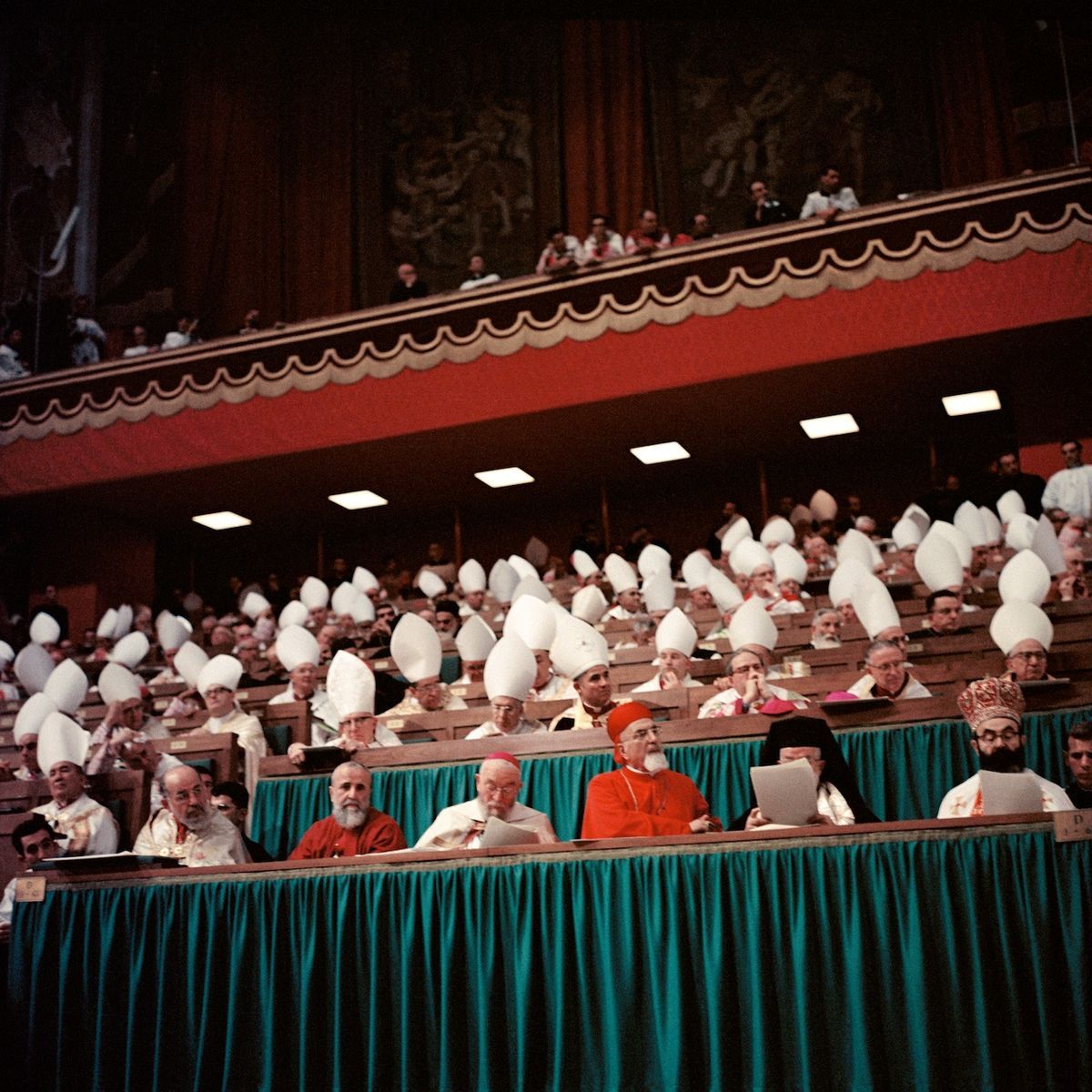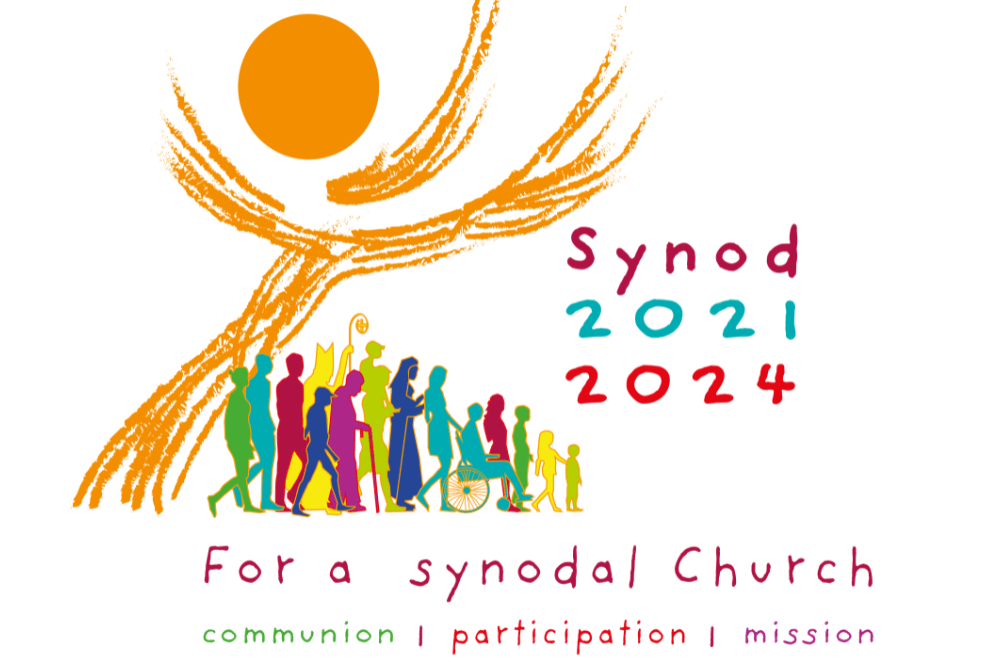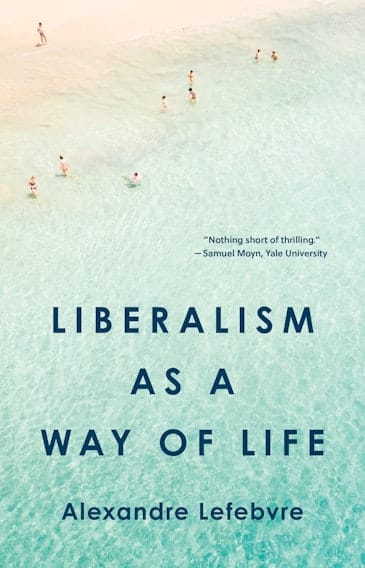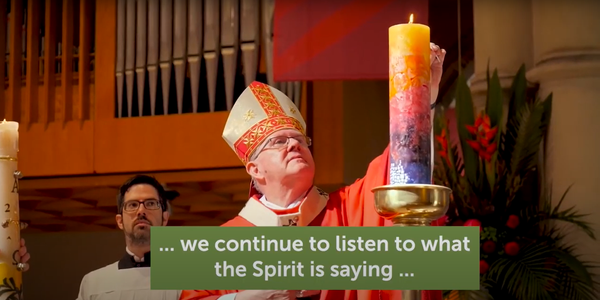0. Introducing Synodal Investigations
A new theological project on the sources and theology of synodality—it's more than just 'walking together'

Rain belted Sydney for months on end in 2022 and the Plenary Council was not spared. Hundreds of delegates, theologians, media, and support staff did their best to stay out of the downpour but, packed into a steamy and crowded St Mary’s Cathedral Hall, they were instead easy pickings for COVID-19. Several bishops and archbishops caught it along with the rest. I got it too. After singing at the joint celebration of the Divine Liturgy of St John Chrysostom by Ukrainian, Maronite, Syro-Malabar and Latin hierarchs, I went home optimistic about the future of the Eastern churches in Australia and proud of our choir, who had worked so hard to prepare for the event. I woke up at 3:00am that morning in a cold sweat and clocked a temperature of 39°C. Oh well.
Whether I was punished by God for my skepticism, or spared some greater punishment by being removed from the proceedings, I missed the whole show for which I had spent months in preparation. I also missed the now-famous Wednesday protest brought on by the bishops’ initial rejection of the Plenary’s motions on women. Even battling COVID brain fog and delirium it was clear on that Wednesday that a significant shift had taken place in the church, one that invited further inquiry.
Synodal Investigations is a theological project growing out of my observations of synodality over the last two years, beginning with the Plenary Council. It is not an academic project, insofar as I am just a writer, and not an academic theologian. It’s also not journalism. I am not reporting what others have done, but as the theologian Stanley Hauerwas once said, I write to find out what I really believe. Like him, I also reject the distinction between academic theology and “popular” theology, and think that theologising is an activity all Christians do.
Indeed one of my major criticisms of the synodal theology is that, despite claiming to be a popular theology, it is a sign of acute alienation from the primary sources of Christian life. The synodal theology seeks a rapprochement with the contemporary world at the very moment that the bones of the Tradition are being excavated, with all the radical possibilities implied by such a discovery. It is naive about a paganism more sophisticated and caustic than those of ages past. It also turns away from the signs of renewal among young Christians, particularly their desire for holiness, liturgy and deeper communion with God.
These phenomena it describes as reactionary or even dangerous. Yet it is the synodal faction that is regressive in this respect. As Fr Georges Florovsky said of the early 20th century Russian church prior to Orthodoxy’s own patristic ressourcement, theology undergoes a pseudomorphosis when it is ripped out of, or even militates against, its proper contexts:
The same Scriptural words resounded from the floor of the school in international Latin, but resounded from the floor of the Church in the maternal Slavic language. […] It was a ‘school of theology’ which of course had no roots in life.
In this respect I share with Hauerwas, Fr Florovsky and many other theological exemplars the desire to theologise in and for the church, in contact with its actual life. Unfortunately, in 2023 a commonplace of Christian life for young people (and young-ish people) is learning to cope with experiences of profound and repeated alienation from the ecclesial body. That the synodal theology is exacerbating the schism between the church and its faithful young people is yet another reason to query its central claims.
But as with all things, God transfigures death into life; alienation is not an absolutely negative experience for us. St Mary MacKillop’s tomb famously bears the epitaph: “We are but travellers here.” She knew our home has never been in this life, and so embracing alienation is also a source of fidelity to the Tradition. For millennial Christians this is a gift, if we can hack it. This has been a theme from the earliest days of the church, as we read in the Epistle to Diognetus (130AD):
The soul loves the flesh that hates it, and loves also the members; Christians likewise love those that hate them. The soul is imprisoned in the body, yet keeps together that very body; and Christians are confined in the world as in a prison, and yet they keep together the world. The immortal soul dwells in a mortal tabernacle; and Christians dwell as sojourners in corruptible bodies, looking for an incorruptible dwelling in the heavens. The soul, when but ill-provided with food and drink, becomes better; in like manner, the Christians, though subjected day by day to punishment, increase the more in number. God has assigned them this illustrious position, which it were unlawful for them to forsake.
On the one hand, we try to make a home in this world and in this life, and fail. On the other, we are alienated from the world but conformed to Christ, who came to his own people but was not received by them.
So to begin in this spirit I am publishing my thoughts directly online as I finish them, rather than trying to publish them as a book or series of papers in academic journals. By the time I finish such a project the synodal moment will be completed. I also want to self-consciously reject the meme in the Christian imagination that the internet is some kind of Tartarus where nothing good happens, or is at best either a mission territory, tool or communications “channel”. Maintaining this attitude continues to alienate all of us who have grown up inhabiting various virtual spaces, and sometimes even find more freedom there than we do offline.
So if you are a young Christian, this project is for you. The church is for you, even though it often receives you like an alien. I will publish new sections of Synodal Investigations in coming weeks as I complete them. If you get something out of it, please share it. If you would like to contribute, please contact me. Updates will come through our newsletter: do subscribe.
The project so far

Synodal Investigations will develop as my own thinking on all this develops, and these pages should be treated as permanent drafts until I eventually publish the final versions. Here are some provisional claims to get things started:
1. It is important at the outset to make a distinction between synodality and the theology of synodality, especially the theology of synodality as it is being presented to the church through the processes currently underway around the globe. There are good reasons to believe that most, if not all, Catholics are interested in many of the key concepts of the synodal moment as they are drawn from the documents of the Second Vatican Council: co-responsibility and collaboration between clergy and laity, a church that is more personal and welcoming, a “listening church” in which people’s legitimate ideas, concerns and questions are not brushed aside, a church that considers the pastoral impact of its doctrines and does not tie up burdens for men’s backs without helping bear them (Mt 23:4).
But the synodal theology goes beyond these themes to articulate a system with a radical surplus of proposals on ecclesiology, doctrine, theological method, sacramental theology etc. These can be legitimately contested without opposing the notion of synodality tout court. In fact, Catholics deserve a contest between differing notions of synodality if we are expected to accept it as the concrete mode of church life in the 21st Century. Even if synodality is ultimately our vocation, the proposals of synodal theologians are still theologoumena, not articles of faith to be accepted without vigorous testing. However, given that there is only one systematic theology of synodality on offer—there is no contest to be seen as yet—I will use the term “synodality” as shorthand to refer to both. As Synodal Investigations develops I will likely change this usage.
2. The initial problem with understanding synodality is that very few people have read the material on offer from the synodal party in the church. There are many good reasons for this, and they are not all unflattering: most Catholics of the JPII/Benedict XVI generation have spent several decades building the structures of the New Evangelisation and are in truth only beginning to see the fruits of their labours. That this new flush of energy and dynamism might be channelled into endless, sterile seminars and discernment groups is quite disheartening. It was also believed that the papal interventions in the interpretation of Vatican II since 1985 had essentially settled the matter of how the Council was to be received. This has proved to be untrue, with the return of the liberal interpretation of the Council and its rapid movement into the centre of Catholic life.
So with respect, attempts to interpret synodality using the tools of the JPII/Benedict XVI papacies therefore do not get to the heart of what this moment is all about. As I will show later, it’s no longer enough to restate the status quo ante. Therefore the first section of this project is a review of three books on synodality pitched at different levels: leading theologian Fr Ormond Rush’s The Vision of Vatican II (2019), Rafael Luciani’s Synodality (2022) and Anne Benjamin and Charles Burford’s Leadership in a Synodal Church (2021).







